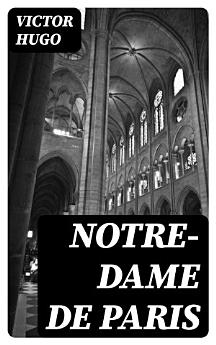Notre-Dame de Paris
sept 2022 · DigiCat
Libro electrónico
465
Páginas
family_home
Apto
info
reportLas calificaciones y opiniones no están verificadas. Más información
Acerca de este libro electrónico
Set against the backdrop of 15th-century Paris, Victor Hugo's "Notre-Dame de Paris" intricately weaves the fates of its richly drawn characters, primarily focusing on the hunchbacked bell-ringer Quasimodo, the beautiful gypsy Esmeralda, and the tormented priest Claude Frollo. Written in a stylized prose that oscillates between a lyrical narrative and vivid, almost cinematic descriptions, the novel reflects Hugo's passionate advocacy for social justice. Its examination of love, obsession, and the clash between human beauty and moral decay positions the book within the Romantic literary movement, offering a critical commentary on the socio-political landscape of France during Hugo's time. Victor Hugo, a preeminent figure in French literature, was deeply influenced by the tumultuous history of his own country, particularly the injustices faced by the marginalized. His personal experiences with political exiles and societal upheaval underscore the themes of compassion and resilience present in the novel. Through his intricate characterizations and profound philosophical reflections, Hugo explores the perennial struggle between individual desires and societal constraints. "Notre-Dame de Paris" is a timeless masterpiece that transcends its historical setting to resonate deeply with contemporary readers. Hugo's exploration of the human condition, along with his evocative portrayal of Paris and its iconic cathedral, makes this a quintessential read for anyone seeking to understand the complexities of love, society, and the indomitable spirit of humanity.
Acerca del autor
Victor Hugo, born on February 26, 1802, in Besançon, France, is revered as one of the most towering figures in French literature. He is an author whose works have cemented his reputation as a poet, novelist, and playwright of the Romantic movement. Hugo's literary career spanned over six decades, within which time he produced an expansive oeuvre that is both celebrated and studied for its emotional depth and social commentary. Perhaps best known to the English-speaking world for works such as 'Les Misérables' and 'The Hunchback of Notre-Dame' (or in its original French, 'Notre-Dame de Paris'), Hugo's writing is distinguished by its profound humanitarianism and vivid imagination. 'Notre-Dame de Paris', published in 1831, stands as an exemplar of the Gothic novel, rich in historical detail and populated by memorable characters like Quasimodo and Esmeralda. The narrative not only captures the architectural splendor of the iconic cathedral but also the complexities of its era, all while weaving a poignant narrative exploring themes of love, fate, and social justice. Hugo's influence extends beyond his literary contributions; he was also a vocal advocate for social causes such as the abolition of the death penalty. His death on May 22, 1885, was mourned as a loss to French culture and the broader literary world. Today, Hugo's legacy endures as scholars and readers continue to explore the depths of his masterful storytelling and the richness of his language.
Califica este libro electrónico
Cuéntanos lo que piensas.
Información de lectura
Smartphones y tablets
Instala la app de Google Play Libros para Android y iPad/iPhone. Como se sincroniza de manera automática con tu cuenta, te permite leer en línea o sin conexión en cualquier lugar.
Laptops y computadoras
Para escuchar audiolibros adquiridos en Google Play, usa el navegador web de tu computadora.
Lectores electrónicos y otros dispositivos
Para leer en dispositivos de tinta electrónica, como los lectores de libros electrónicos Kobo, deberás descargar un archivo y transferirlo a tu dispositivo. Sigue las instrucciones detalladas que aparecen en el Centro de ayuda para transferir los archivos a lectores de libros electrónicos compatibles.








